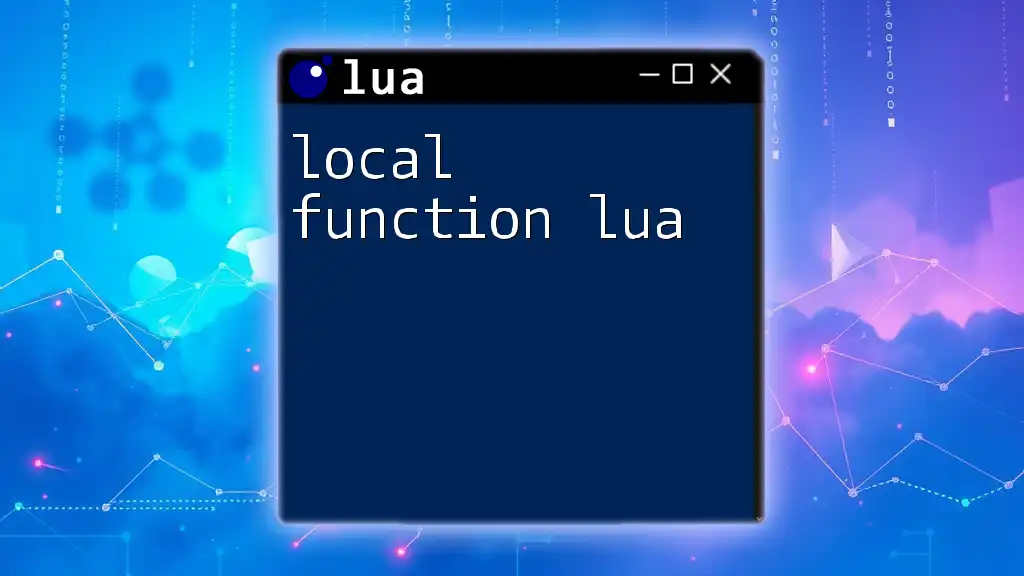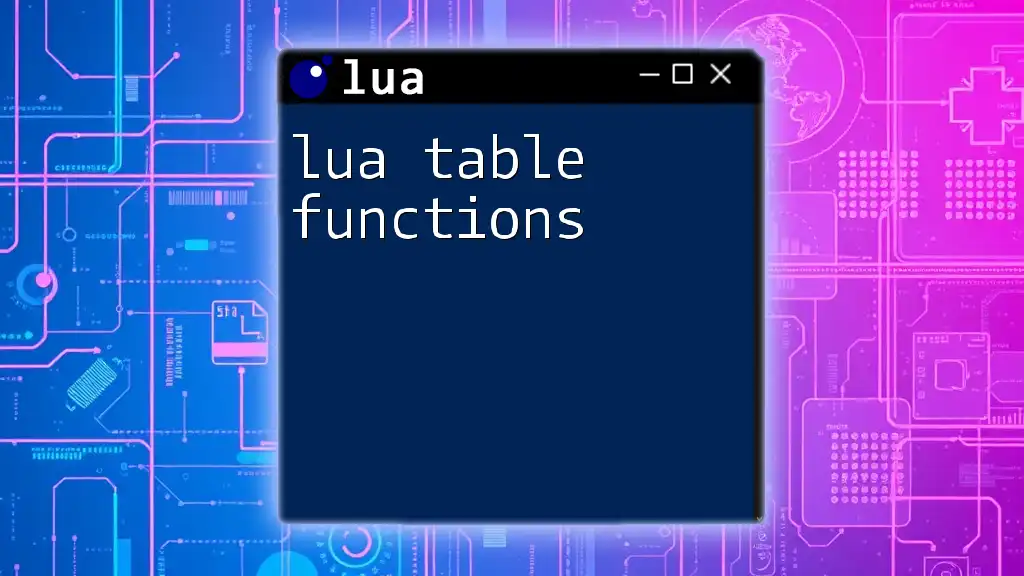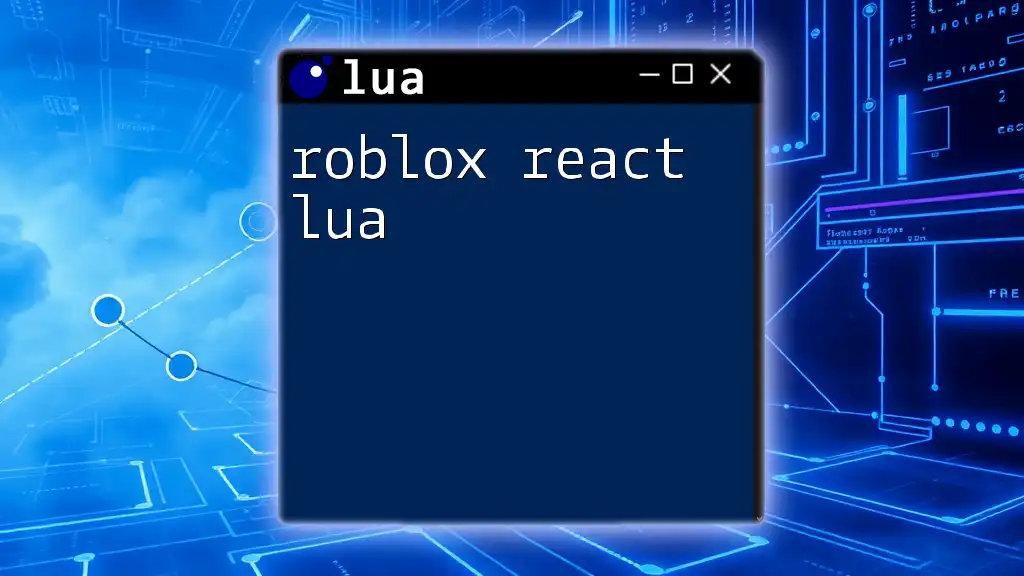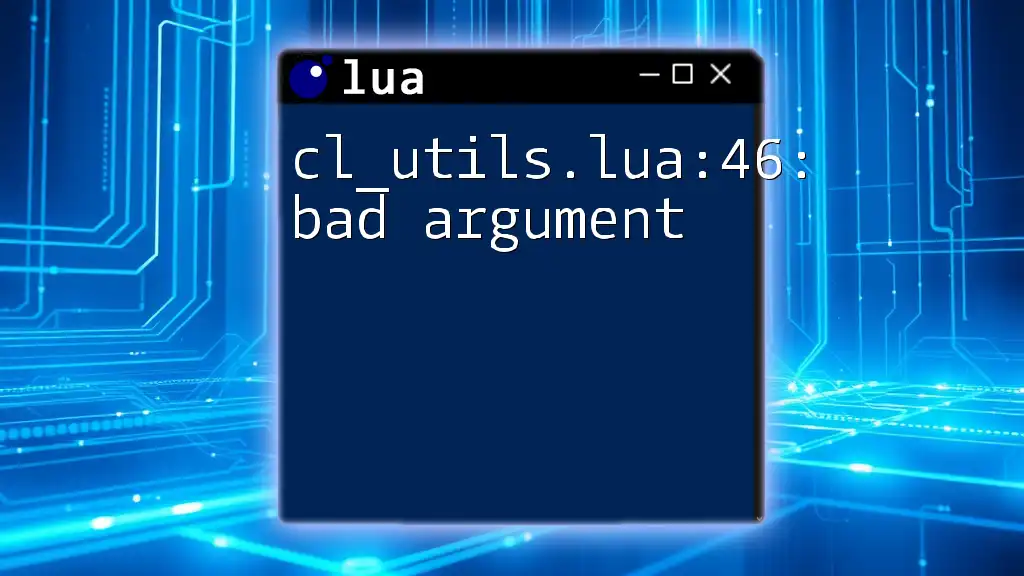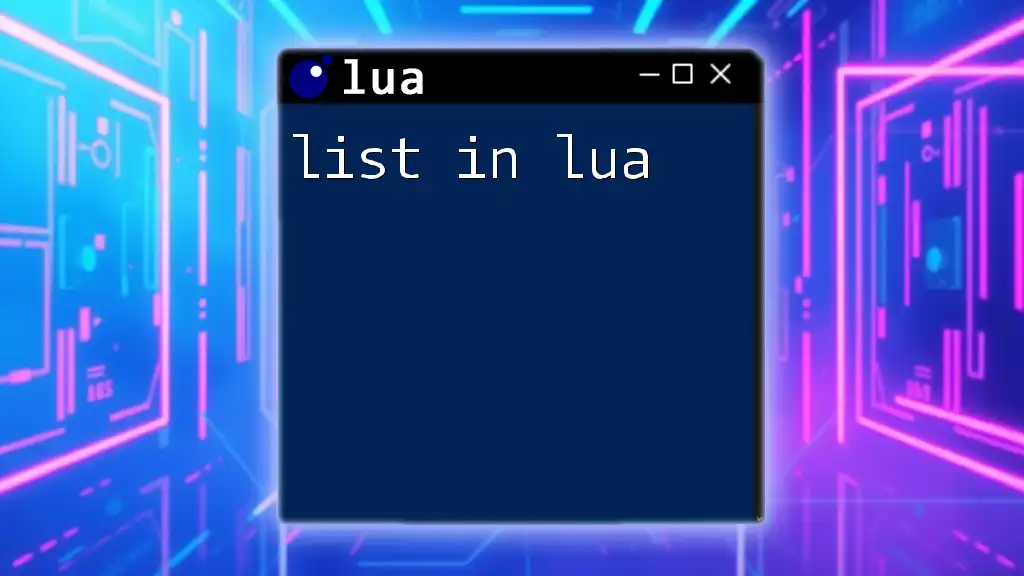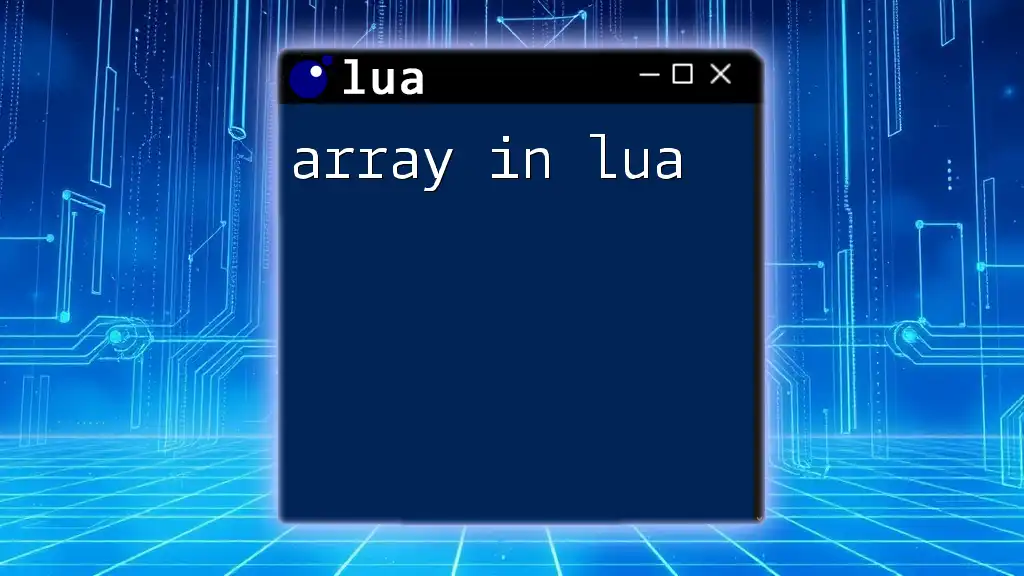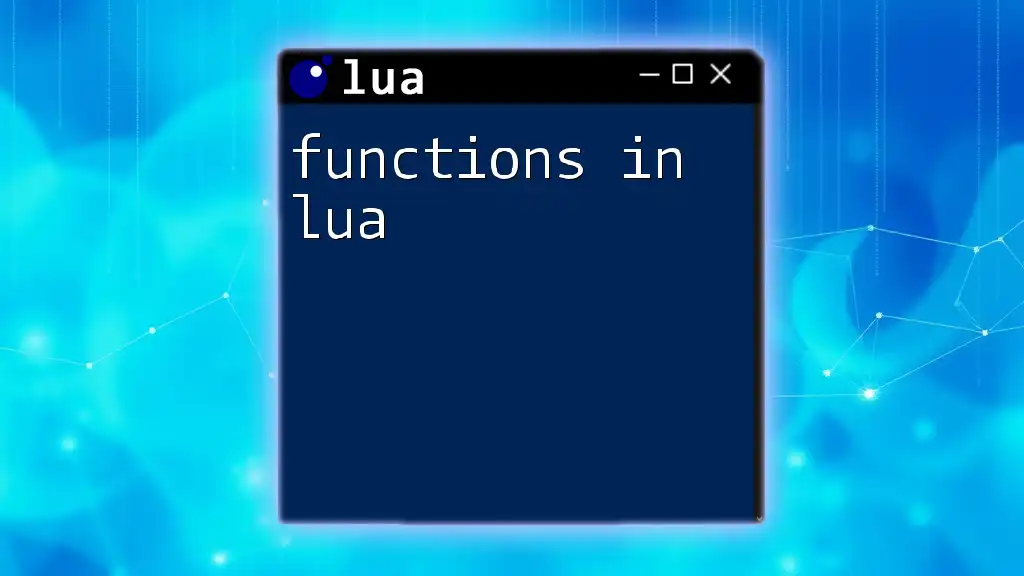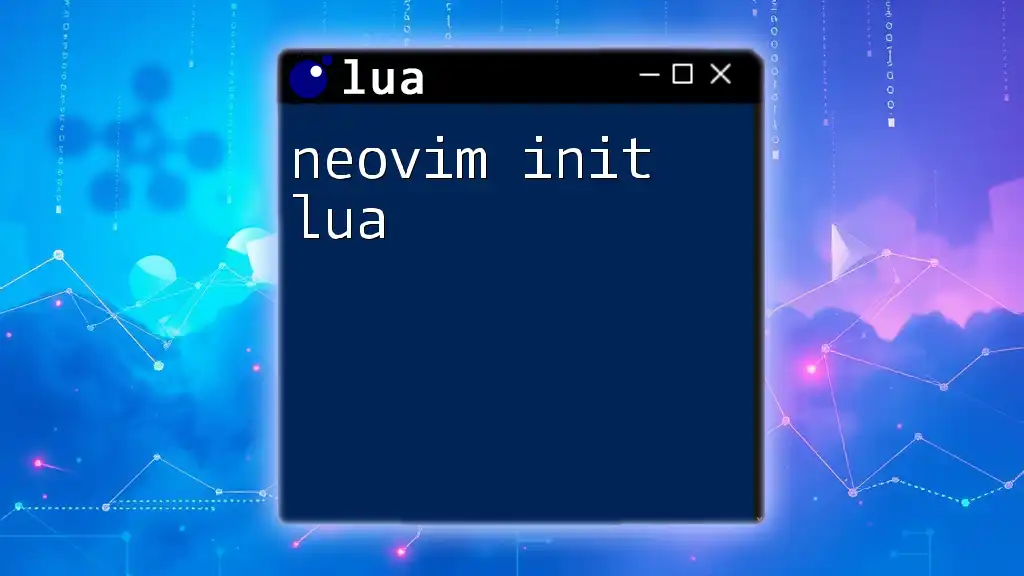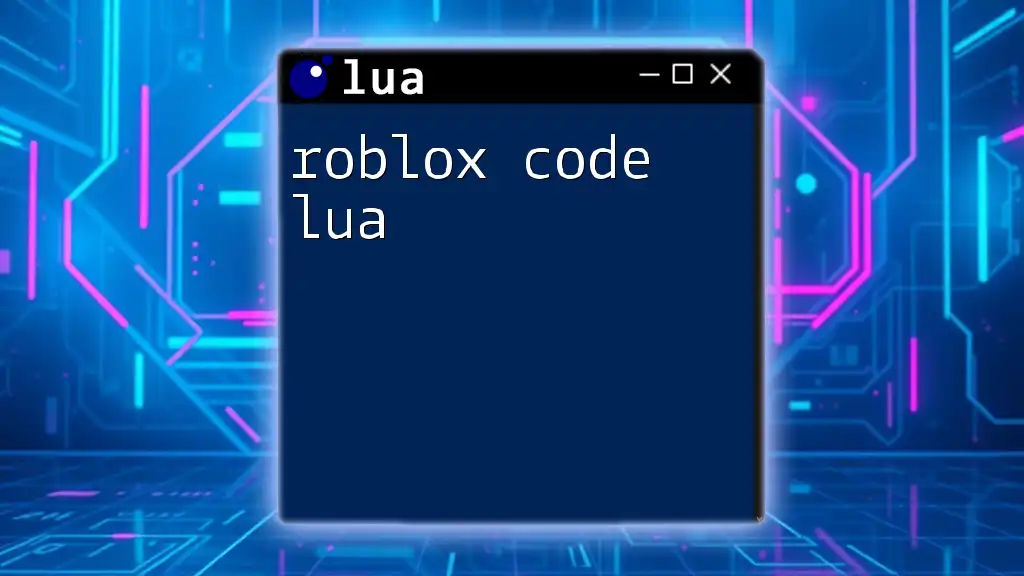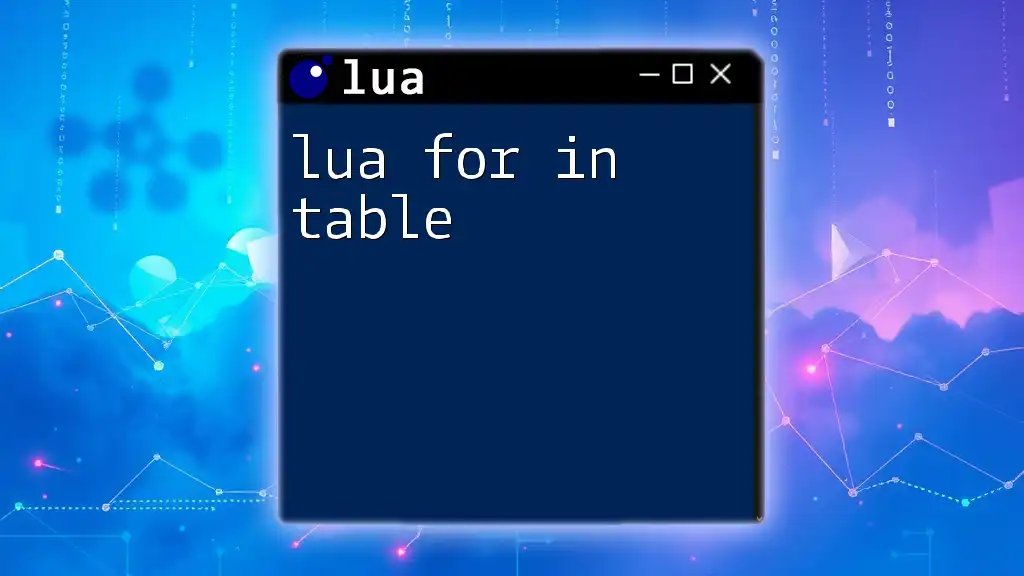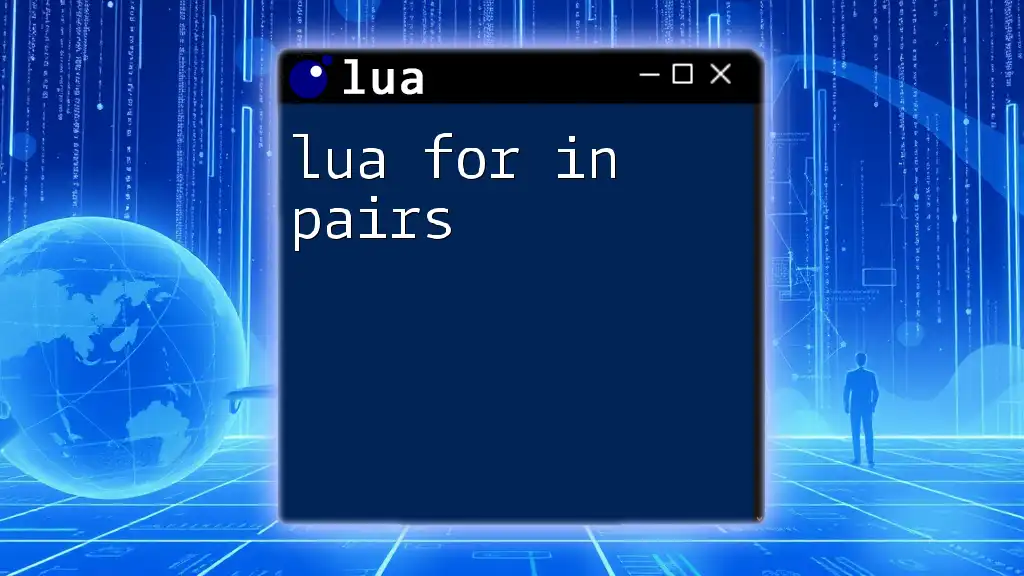In Lua, a local function is a function that is accessible only within the block of code where it is defined, helping to encapsulate functionality and prevent naming conflicts.
local function greet(name)
return "Hello, " .. name .. "!"
end
print(greet("World")) -- Output: Hello, World!
What is a Local Function?
A local function in Lua is a function declared with the `local` keyword, which limits its visibility to the current scope. In contrast to global functions, which can be accessed from anywhere in your script, local functions are encapsulated within the block of code where they are defined. This encapsulation serves several important purposes, including reducing the likelihood of naming conflicts and improving code organization.
Characteristics of Local Functions
-
Scope: Local functions are only accessible within the block they are defined in. This helps maintain a cleaner namespace and minimizes unintended interactions between functions.
-
Lifetime: The lifetime of local functions is tied to the scope in which they are declared. They are created when the block is executed and destroyed once the block is exited.
-
Visibility: A local function cannot be accessed from outside its scope, which ensures that details about its implementation remain hidden unless explicitly exposed.
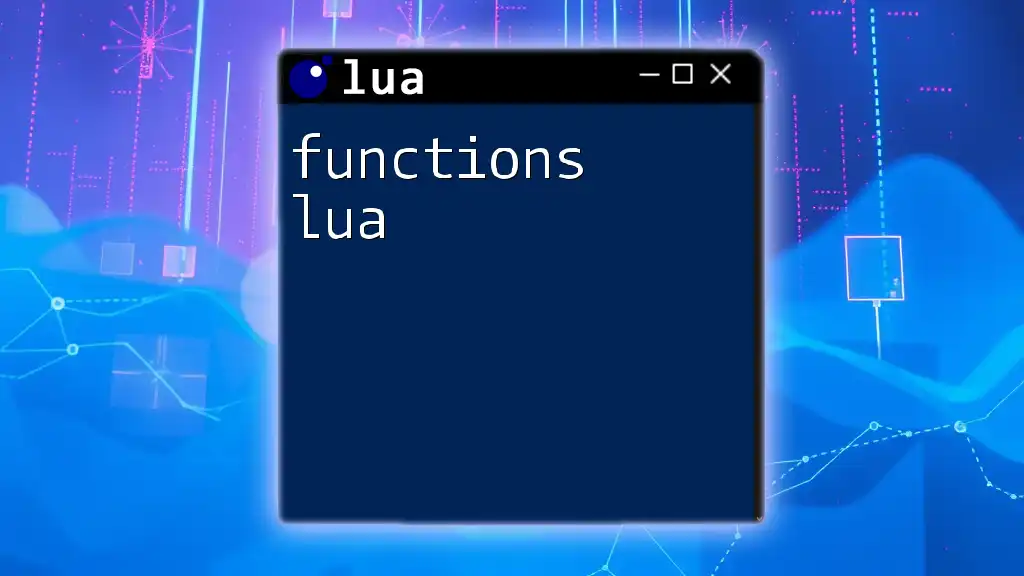
Declaring a Local Function
To declare a local function in Lua, you can use the following basic syntax:
local function functionName(parameters)
-- function body
end
Example of Declaring a Local Function
Here’s a simple example of a local function that greets a user by their name:
local function greet(name)
print("Hello, " .. name)
end
In this example, `greet` is a local function that concatenates "Hello, " with the provided name and prints the result.
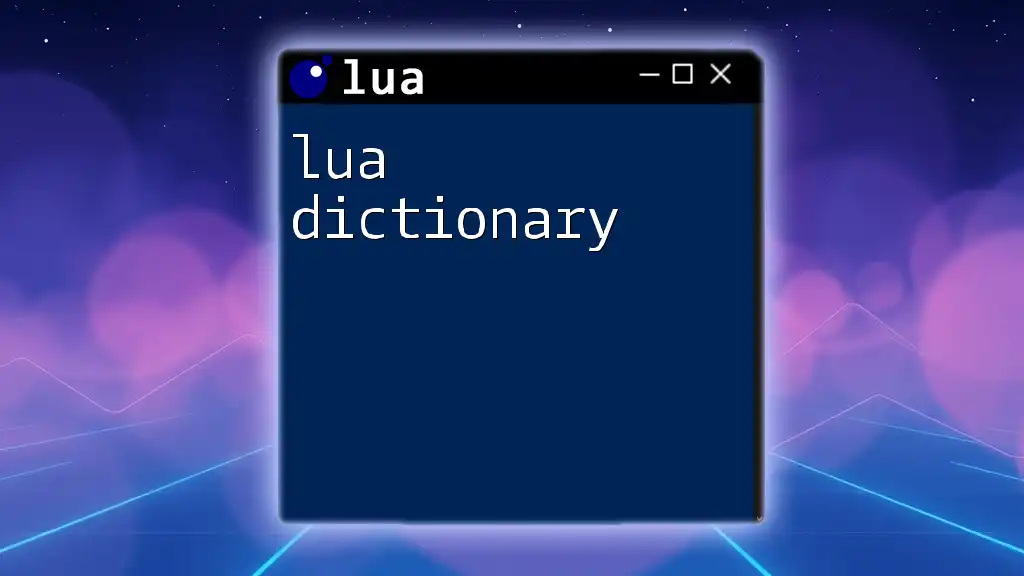
Invoking a Local Function
Calling a local function works the same way as invoking any function in Lua. Here’s how you would call the `greet` function:
greet("Alice") -- Output: Hello, Alice
Example of Invoking a Local Function
Let’s see another example that demonstrates addition using a local function:
local function add(a, b)
return a + b
end
local result = add(5, 7)
print(result) -- Output: 12
In this code, the `add` function takes two parameters and returns their sum. The result is then printed, showcasing the local function's usability.
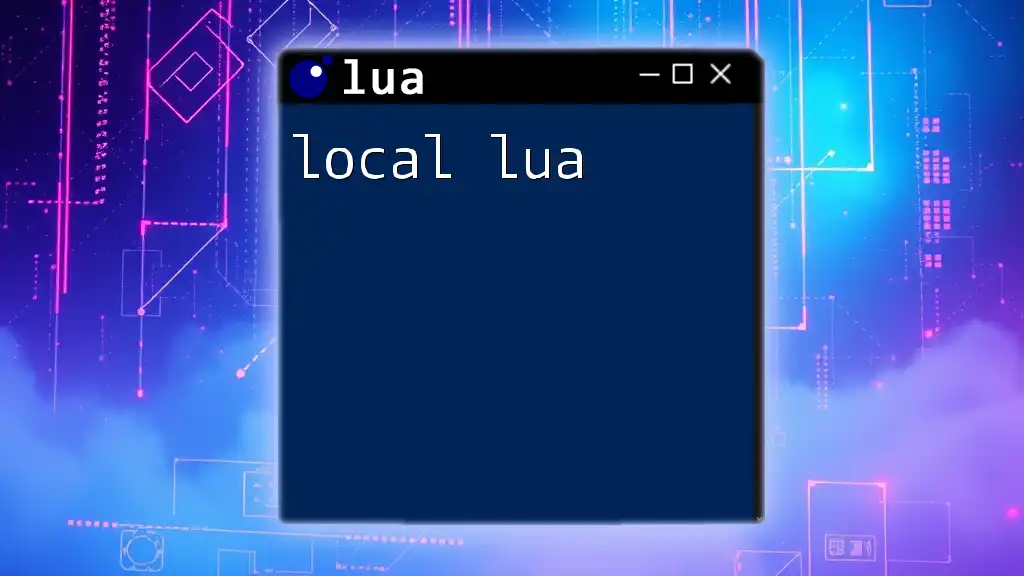
Scope of Local Functions
In Lua, the concept of scope is particularly important. A local function’s scope is restricted, meaning it can only be accessed within its declared context.
Scope in Lua
Understanding scope ensures that you avoid accidental interactions between functions or variables. This allows for more modular and maintainable code.
Local Variables vs. Local Functions
Local functions are similar to local variables in the way they are scoped. For instance:
local function example()
local x = 10
print(x) -- This will work
end
example()
print(x) -- This will throw an error
In this example, `x` is a local variable inside the `example` function. It's accessible only within that function, while attempting to print `x` outside of `example` results in an error since `x` is no longer in scope.
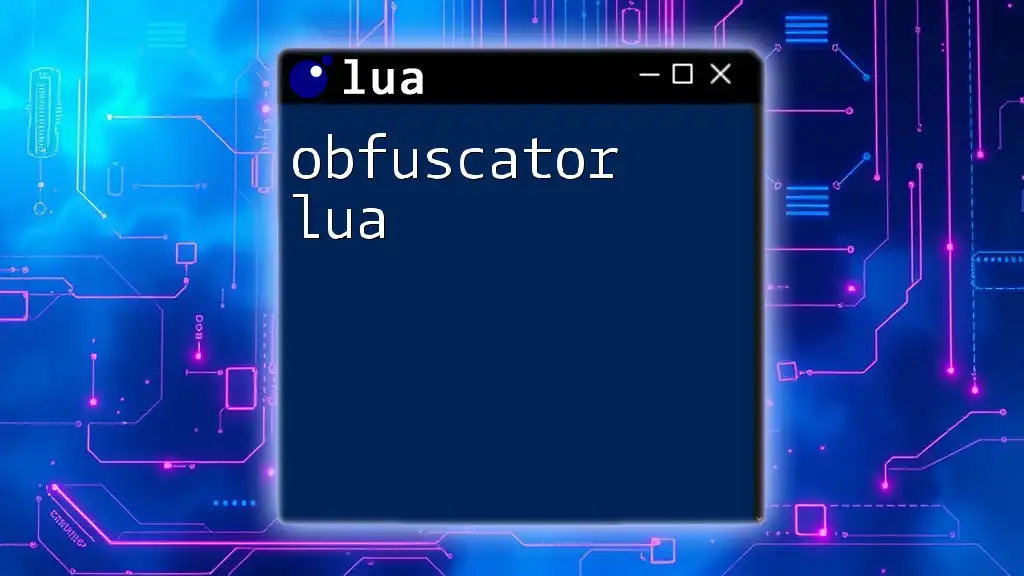
Benefits of Using Local Functions
Performance
Using local functions can lead to performance enhancements. Because local functions are optimized for faster access than their global counterparts, relying on local functions can result in quicker execution times, particularly in loops or heavy computations.
Encapsulation
Local functions support the principle of encapsulation, which enhances code organization by concealing implementation details. This makes your code easier to debug and modify. By hiding your functions from the global scope, you keep dependencies minimized.
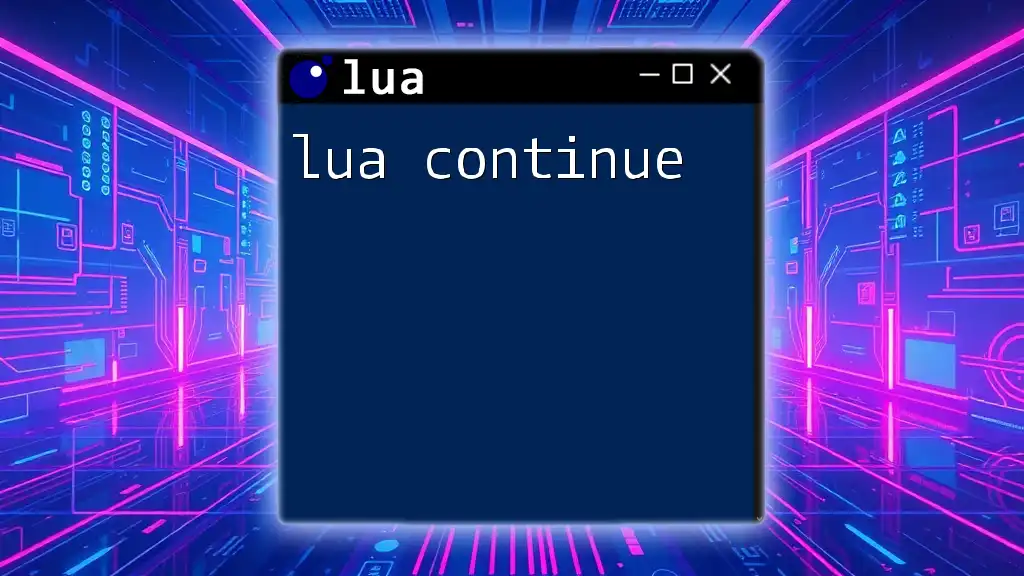
Common Use Cases for Local Functions
In Event Handlers
Local functions are often used in event-driven programming. For example, you can create a local function that handles a button click:
local function onClick()
print("Button clicked!")
end
This function could be attached to a button event to perform specific actions when the button is activated.
In Table Methods
You can also utilize local functions as methods within tables. Here’s an example:
local myTable = {}
function myTable:add(value)
local function addToList()
print("Adding " .. value)
end
addToList()
end
myTable:add(10) -- Output: Adding 10
In this example, `addToList` is a local function defined within the `add` method of `myTable`, ensuring that its accessibility is limited only to that method.
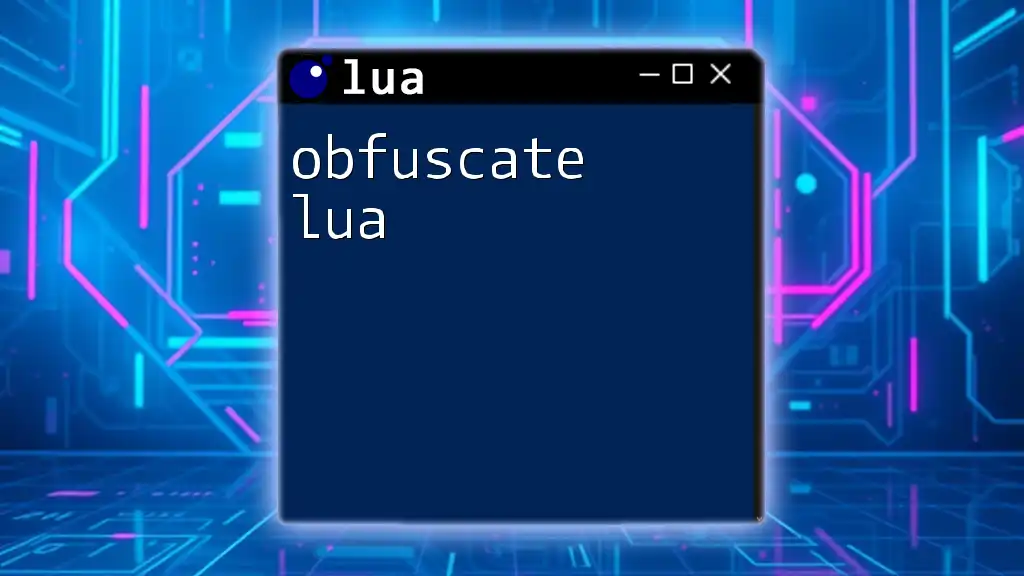
Best Practices for Using Local Functions
Naming Conventions
Naming your functions appropriately is crucial. Local functions should have descriptive names that convey their purpose. Consistent formatting helps maintain readability in larger projects.
Avoiding Conflicts
When using local functions, be aware of potential conflicts with global variables. As a best practice, always favor local variables and functions within your blocks to prevent side effects. Here’s an example:
local function calculate()
local result = 5 + 10
print(result)
end
calculate() -- Output: 15
print(result) -- This will throw an error
Using local scope ensures that `result` cannot conflict with another global variable named `result`, preserving your code's integrity.
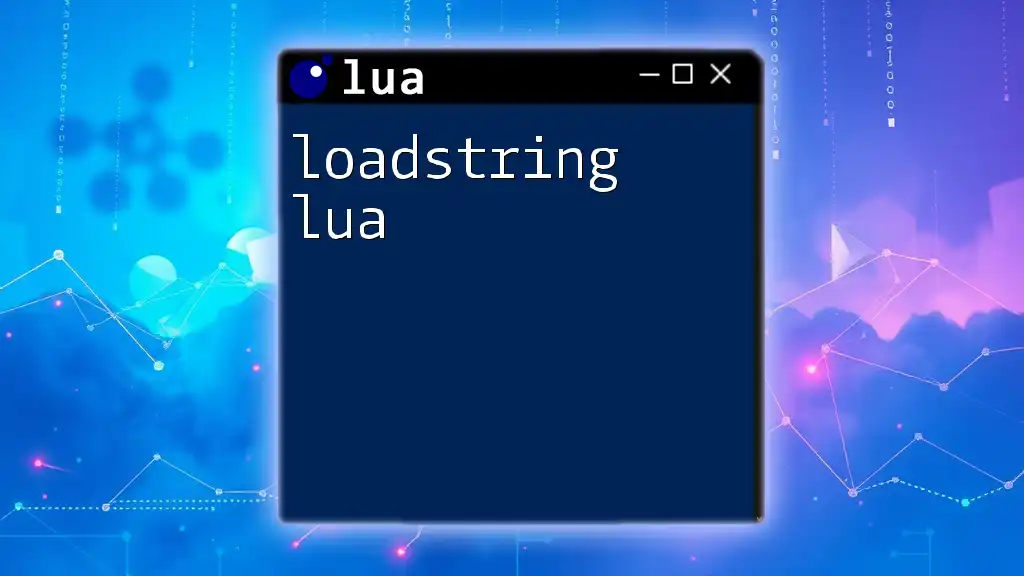
Conclusion
In summary, mastering local functions in Lua greatly enhances your programming capabilities. They not only improve performance but also help maintain code organization through encapsulation. By adhering to best practices, you can effectively utilize local functions for a cleaner, more efficient coding experience. Embrace the power of local functions, and explore their applications in your Lua projects!
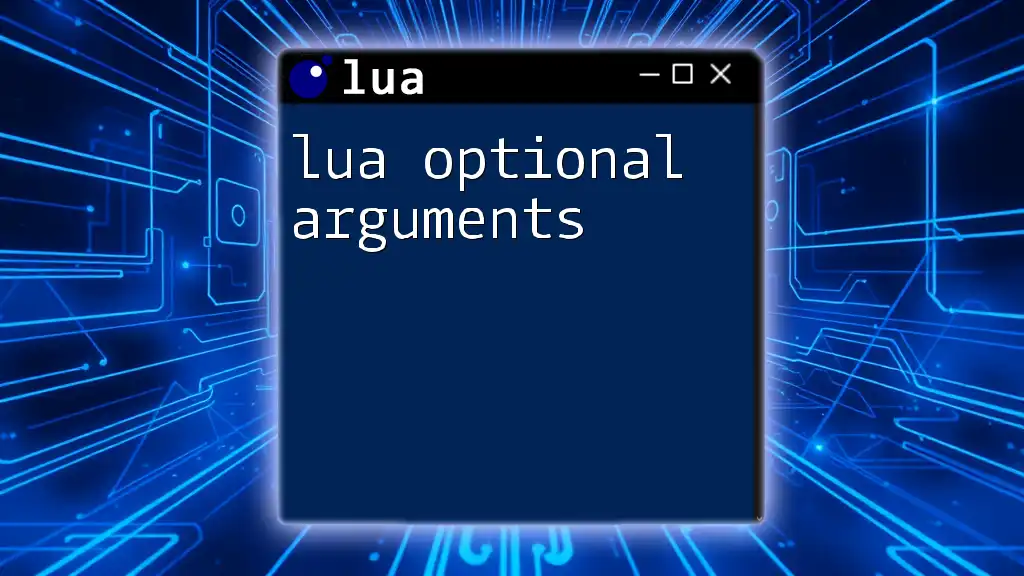
Call to Action
Sign up for our courses or workshops to delve deeper into Lua programming and elevate your coding skills. Share your experiences with local functions and let’s create a vibrant community of Lua enthusiasts together!

